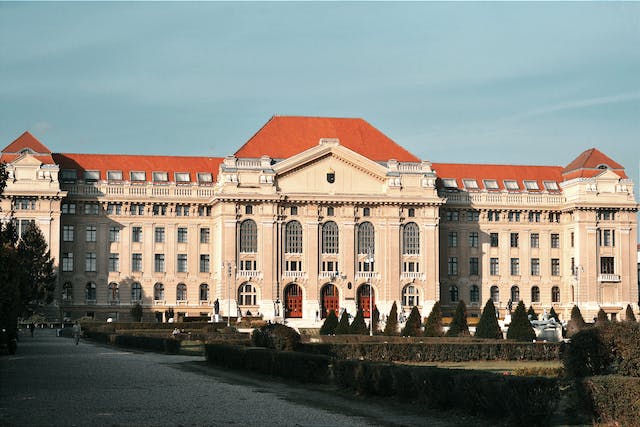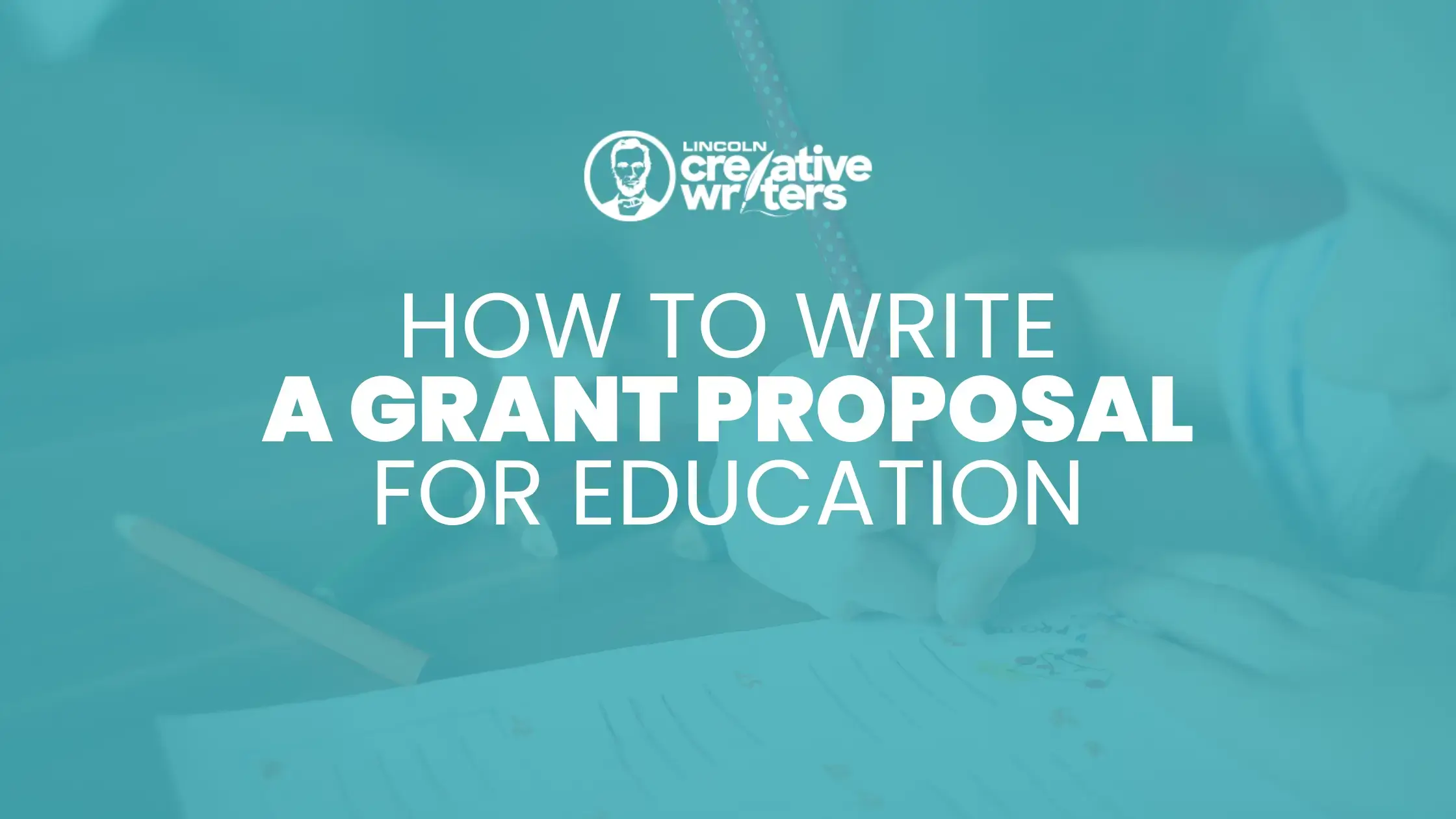Are you an academic and looking for grants for your research? You might be wondering how you can collect funds for your research or project, and how to get someone to support you financially. Educational grants are the way to go. Educational grants help students research in their respective academic fields. Academic projects and research can be expensive and oftentimes, getting a pell grant or educational grant is a deciding factor for your research or vision to be a success.
Educational grants may result in an academic gaining acknowledgement in their fields because they are highly respected.
Writing a proposal for grants can be a daunting task but it’s the first step to bringing your vision to life, or you’ll be stuck with the same outdated methods and information. Keep reading to learn more about how to write a grant proposal for education, say goodbye to your fears and start writing!
Types of Grants

1. Undergraduate Grants
This kind of grant helps students from different backgrounds get an education in universities. Some might specifically help students with specific academic interests while others may only focus on merit. Also read this blog to get grant for schools students.
2. Postgraduate Grants
Ideal for doctoral and master’s students, these grant proposals for education help postgraduates cover the expenses of their research in their respective fields. You typically need to submit a grant proposal.
3. Visiting Scholars Grants
These grants help students in their research at a different university than their own, at some research institute that is not associated with their college. These students are required to show how they have put the grant to use in their research. These grants are ideal for doctoral-level students and graduates.
4. Traveling Grants
These grants are for students who need to travel to conduct their research, these types of grants usually cover most of the traveling expenses and other transportation needs but are usually much smaller grants than other types of educational grants. These are ideal for undergraduate and graduate students.
Why you Need an Educational Grant
By writing an educational grant, you do not just receive educational grants, but also establish valuable connections with grant-making institutions and foster potential partnerships. Grant writing provides an excellent platform to showcase your unwavering commitment to your objectives. While it may seem like only the grant sleeping benefits from these grants, the grant-making institutions investing in a project or initiative represent a commitment to impactful transformations in areas aligned with their values and concerns.

These grants are a great opportunity for academics from less privileged backgrounds, offering financial support for higher education pursuits. Although grants may not cover all college expenses, they provide a non-repayable funding option. Educational grants are a compelling alternative to scholarships, allowing them to access significant sums without the obligation of repayment. Beyond scholarships, grants often provide more substantial financial support, reaching into the thousands of dollars.
With these grants, students gain not only financial assistance but also invaluable skills. The application process sharpens writing and interviewing skills, fostering organization and preparation. Even if a student does not secure financial aid, the experience contributes to a deeper understanding of student finances and the availability of unexpected forms of assistance. In essence, applying for scholarships, grants, and other forms of financial aid emerges as a valuable undertaking with potential benefits beyond the immediate financial support.
Understand your Project and the Granting Institution
To secure funds through an education grant, you need to craft a grant proposal, a pivotal step that demands thorough research, strategic planning, and a well-defined vision. As the first step, understand the objectives of the funding body, aligning your proposal to showcase the resonance between your project and its goals. Emphasize the benefits your initiative offers, ensuring a focus on collective advancements rather than individual gains.

While the actual writing phase takes up a huge portion of an applicant’s time, preliminary efforts should be directed towards essential pre-writing steps. In academia, particularly at the graduate and doctoral levels, research is highly important. As an applicant, you need to spend a lot of time refining and clarifying your research focus, ensuring it possesses a distinct identity. Grant reviewers assess whether the proposed research is feasible and if the applicant has the required resources. These factors are important when research focus is planned
Once a funding agency is selected, understanding of its mission and goals is crucial. Make sure you read their website, annual report, and past grant holders to assess the compatibility of your project. Questions regarding alignment with prior grant holders and the extent to which your project addresses the funding agency’s goals should guide your evaluation.
Get Feedback
Building connections within your community or among fellow faculty members to establish partnerships enhances the chances of your grant application standing out. Getting feedback and collaborating not only strengthens your proposal but also unveils potential additional funding opportunities. Drawing from your professional expertise is essential for developing research ideas, and collaborating with experts can bring valuable insights.
To succeed, align your research with the needs of your respective field, and combine them with your passion and inquiry. A partner can uniquely contribute to addressing these needs. While the grant proposal writing process is typically one person’s job, engaging others for feedback is crucial. Data shows that more than half of the unsuccessful applicants got feedback from three or fewer people, while the successful applicants had at least seven people review their proposals.
Make a Strong Introduction
Writing a captivating introduction is crucial in grant proposal guidelines, it serves as the reader’s initial impression and often determines whether they will continue reading. Begin by succinctly presenting your idea, relevance, and the reasons for seeking funding, setting the tone for the entire proposal. Your introduction should efficiently introduce the problem or need, presenting a clear, supported statement and concluding with a brief overview of your solution.
Consider your audience and adapt your language to their level of familiarity with your discipline. Align your funding request with the goals and mission of the funding body, and thoroughly research the review panel members to understand their expectations. Ensure that your proposal is comprehensible to readers from diverse backgrounds, avoiding discipline-specific jargon.
State your Problem Directly
Clearly stating goals and objectives is crucial in the grant proposal process. If overlooked, this step can cause many proposals to fail, making prior efforts ineffective. Craft a compelling narrative that vividly illustrates the problem and highlights how your solution can make a meaningful difference. Providing detailed information about the desired outcomes and how success will be measured is essential.
This section plays a key role in conveying the benefits that the grantee will derive from their investment. It’s important to distinguish between Goals and Objectives; Goals are broad statements, while Objectives are more specific intentions with measurable outcomes and a defined time frame. Explain how your solution will address the problem and enhance the situation.
Show How Sustainable your Goals are
Demonstrate to your grantee that your project will have a positive and lasting impact by outlining how you’ll measure and report outcomes, use feedback for improvement, and sustain the project beyond the grant period. Develop a realistic timeline within the grant period, considering potential delays and involving experienced colleagues for input. Be concise but effective, highlighting milestones in your timeline.
Clearly illustrate how your solution contributes, holding yourself to high evidence standards. Provide examples of potential outcomes to vividly depict the envisioned impact. Explain what success looks like for your project and outline how you’ll evaluate its achievement. Share identifiable markers and outcomes that signify the attainment of your goals.
Cover Letter
The cover letter is a critical element of your proposal and showcases the highest-level commitment to the project. It serves as the pitch for your detailed grant proposal, akin to a summary of your book. Keep the average grant proposal letter concise, limiting it to one page.
This cover letter functions as the introduction to your project, setting it apart from other candidates. Focus on the hook, a compelling opening statement that immediately engages the audience. Include:
- A high-level overview of your project, saving detailed explanations for the proposal.
- A concise summary of the funding needed and its intended use.
- Contact information for the primary contact, including email address and phone number.
Your cover letter offers the perfect chance to capture the funder’s attention and distinguish your application. Unlike the formal tone of the rest of the grant application, the letter can be less formal and address the reader more directly. Its primary goal is to compel the reader to delve into your detailed proposal, recognizing that they’ve likely reviewed numerous applications and your letter should stand out from the crowd.
Proofread and Practice
Grant funders seek people with a high degree of expertise and ability. Consult people who have gone through the process of the grant proposal process, seeking guidance for your proposal. Collaborate with peers to share the workload effectively.
Before submitting your proposal, engage in thorough proofreading and revision. Look for spelling, grammar, punctuation, and formatting errors, ensuring clarity, consistency, and accuracy of content. A careful review enhances the professionalism of your proposal and increases the chances of your proposal getting accepted.
Plan your Budget
When crafting a proposal, you must thoroughly understand the funding requirements, duration, and specific coverage. Funding needs can vary, from supporting fieldwork or experimental research to aiding postdoctoral students in completing dissertations or manuscript translations. Consideration of the funding duration is crucial; some projects may span a few months, while others may extend over nearly a decade.
Clearly articulate how funds will be utilized throughout the research duration to provide a comprehensive view for evaluators. Panels evaluating proposals perform a risk-benefit analysis to assess project worthiness, emphasizing the need for a detailed explanation of the research’s resource requirements. Presenting a high-quality budget in your grant application offers several advantages:
- Increases approval likelihood
- Facilitates efficient program management by defining spending limits
- Expedites grant reporting, ensuring accuracy when reporting back to funders.
Conclusion - How to Write a Grant Proposal for Education
Knowing how to write a grant proposal for education is important, make sure you follow the steps with great care and your proposal will surely stand out. It might seem intimidating at first but maintain consistency. Learn from your mistakes and do not stop if you fail on the first attempt. Also read our blog to put grant writing skills on your.
People Also Asks
Is it Important for Me to Structure the Fund’s Budget?
Clarifying how the budget should be presented and what expenses are eligible helps in crafting a comprehensive and compliant budget. To ensure your grant proposal makes an impression on the provider, proper budget distribution is crucial. It will keep everything transparent.
What Types of Projects Can I Get a Grant For?
Grantmakers often have specific focus areas or priorities. Understanding the types of projects they typically support is important. Depending on why you need it, grants can vary. You can use grants for education, property or for research.
How to Write a Grant Proposal for Education as a Beginner?
Writing a grant proposal for education as a beginner can be a challenging but rewarding process. Be sure to get feedback from as many peers as you can, seek advice from those who have been through the process and make sure you thoroughly research the grant you are applying for.
Author Bio

Brian Bertrand
Brian Bertrand is a professional content writer with over five years of experience in the industry. He specializes in writing grant proposals, resumes, and cover letters for various clients, ranging from non-profit organizations, academic institutions, and individual job seekers. He has a knack for crafting persuasive and engaging content that showcases the strengths and achievements of his clients. He holds a bachelor’s degree in English and a certificate in grant writing from the University of California, Berkeley.

